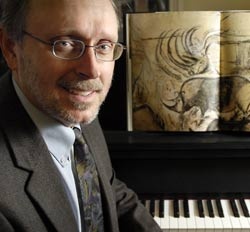HUMS 382, Nature and Human Nature

Course Description:
This course will explore the Western conception of the human place in the natural world as it has shifted across four centuries. It will feature, alongside corollary readings, close study of three classic texts: Galileo’s Dialogue Concerning the Two Chief World Systems (1632), Giambattista Vico’s New Science (1744), and Darwin’s Origin of Species (1859)—fundamental works locating humans in the cosmos, in society, and in natural history, respectively. It will finish with a new book, Terrence Deacon’s Incomplete Nature (2012), an attempt to explain the emergence of mind from the natural world.
Led by:
 |
Professor Gary TomlinsonGary Tomlinson, John Hay Whitney Professor of Music and Humanities, is a musicologist long committed to multidisciplinary exploration, and his teaching, lecturing, and scholarship have ranged across a diverse set of interests. Central among these have been traditions of European classical music, including the history of opera and early-modern musical thought and practice; but his essays and books embrace such other topics as the music of indigenous American societies, jazz, cultural and anthropological theory, the philosophy of history, affect theory, and human evolution. His latest research, joining humanistic theory, archaeology, and evolutionary science, investigates the role of cultural forces in the formation of modern humanity. It has led to two books: A Million Years of Music: The Emergence of Human Modernity (2015) and Culture and the Course of Human Evolution (in press). His earlier books include Monteverdi and the End of the Renaissance; Music in Renaissance Magic: Toward a Historiography of Others; Metaphysical Song: An Essay on Opera; The Singing of the New World: Indigenous Voice in the Era of European Contact; and Music and Historical Critique. |